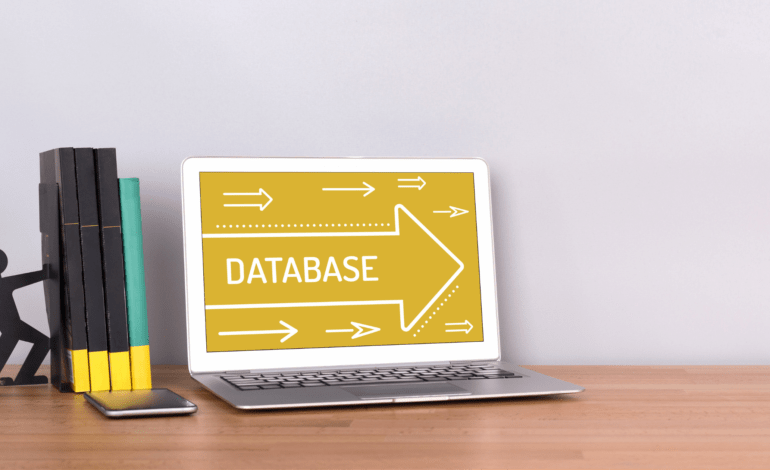The Different Types of Address Book Databases: Exploring Solutions and Software
Startadatabase
- August 30, 2023
- 5 min read

In today’s digitally connected world, managing contacts and maintaining an organized address book is essential for individuals and businesses alike. Address book databases play a pivotal role in keeping track of important contacts, facilitating effective communication, and streamlining various processes. In this article, we will delve into the various types of address book databases and explore software solutions that offer these services. So, let’s dive in!
In the era of digital communication, having a well-organized address book is crucial for maintaining relationships and managing professional connections. Address book databases provide a structured way to store, access, and update contact information, ensuring that you never lose touch with important contacts.
1. Understanding Address Book Databases
Address book databases are electronic repositories that store contact information such as names, phone numbers, email addresses, and additional details. These databases allow users to manage their contacts efficiently and access them whenever needed.
2. Types of Address Book Databases
Local Address Book Databases
Local address book databases are stored on an individual’s device, such as a computer or smartphone. These databases offer quick access to contacts without relying on an internet connection. However, they may lack synchronization across multiple devices.
Network Address Book Databases
Network address book databases are designed for sharing contacts within a specific network, such as a business organization. This type of database ensures that employees have access to an updated list of contacts, improving internal communication.
Cloud-Based Address Book Databases
Cloud-based address book databases are hosted on remote servers and can be accessed from anywhere with an internet connection. They offer synchronization across multiple devices, ensuring that your contacts are always up to date.
Contact Management Software
Contact management software provides advanced features beyond basic contact storage. It often includes features like task management, lead tracking, and customer relationship management (CRM) capabilities.
3. Benefits of Using Address Book Databases
- Efficiency: Quickly find and retrieve contact information.
- Organization: Categorize contacts for easy sorting and retrieval.
- Accessibility: Access contacts from any device or location.
- Backup: Safeguard against data loss with regular backups.
- Synchronization: Keep contacts consistent across multiple platforms.
4. Software Solutions for Address Book Management
1. Google Contacts
Google Contacts offers a user-friendly interface and seamless integration with other Google services. It provides automatic updates and synchronization across devices.
2. Microsoft Outlook
Outlook’s People feature is an integrated address book that syncs with your email and calendar. It’s suitable for professionals who rely on the Microsoft ecosystem.
3. Apple Contacts
For Apple users, Apple Contacts offers a simple yet effective solution for managing contacts across iOS and macOS devices.
4. HubSpot CRM
HubSpot CRM is a comprehensive solution for managing contacts, leads, and customer interactions. It’s ideal for businesses seeking advanced CRM capabilities.
5. Zoho ContactManager
Zoho ContactManager is a cloud-based contact management software with features like tagging, customizable fields, and social media integration.
5. Factors to Consider When Choosing Address Book Software
- User-Friendly Interface: Intuitive navigation and ease of use.
- Cross-Platform Compatibility: Compatibility with various devices and operating systems.
- Integration with Other Tools: Seamless integration with email, calendars, and other productivity tools.
- Security and Privacy Features: Robust security measures to protect sensitive contact information.
6. Best Practices for Maintaining an Effective Address Book
- Regular Updates: Keep contact information current and accurate.
- Data Backup: Regularly back up your address book to prevent data loss.
- Duplicate Management: Periodically check and merge duplicate contacts.
- Category Management: Organize contacts into categories or groups.
- Privacy Considerations: Respect the privacy preferences of your contacts.
Conclusion
In a world where connections matter, maintaining an efficient and updated address book is vital. Address book databases, whether local, network-based, or cloud-powered, provide the tools needed to manage contacts effectively. With a variety of software solutions available, individuals and businesses can choose the one that best fits their needs and preferences.
(FAQ)
The main purpose of an address book database is to organize and store contact information.
A2: Yes, if you’ve synchronized or downloaded the data beforehand.
A3: Yes, it’s useful for organizing personal contacts and information.
A4: Regularly update when you acquire new contacts or there are changes.
A5: Yes, options like Google Contacts and Microsoft Outlook (free version) are available.








